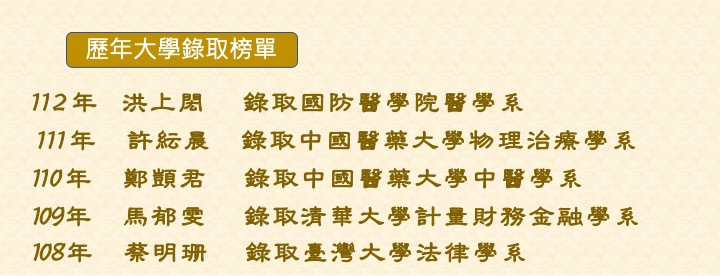詩興殷勤抱膝吟—連志道老師往生週年紀念網頁
前 言
吾師諱淑美、號志道,雪廬老人之弟子也;其號即為雪公所賜,蓋深有期許焉。而吾師亦遵奉終身,志誠且堅;觀其於新社鄉中和村掩關詩作一首,可知其行解相應、不忘菩提之道心也。
雪師往生十周年關中有感
小園春暖頻伽宣 掩卷漫漫翠竹邊
十載影塵皆逝水 一心清鏡不憂天
青蓮座下朝勤禮 法海藏中夕忘筌
鯤島學師栽淨蕊 寂光再覲續前緣
師於關中,頗蒙果清和尚護持指導;溯其源乃蓮社內典班同窗之誼,而清公於吾師,亦師亦友之交,實令人感懷無既(關於內典班之修學及吾師關中概況,可參附錄—果清和尚為連志道老師封棺法語)茲敬錄吾師出關之前,所作呈上人詩二首:
謝呈 清上人
其一
昔日同行今教誡 前番誼篤後慈流
他年若得往生去 公案兩重一併休
其二
三載慇懃垂教授 醍醐淨洗世間情
上人若問出關意 月色中秋分外明
吾師出關後,深感栽培人材,教育紮根,是當今要務;乃立志於興學。陸續創辦弘明幼兒園、弘明實驗小學、弘明實驗高中;其於文化傳承、弘道明德之深意,由所題詩作可見一斑。
題草屯弘明幼兒園
繞階迤邐烏溪水 遙望門前八卦山
稚子絃歌常不輟 弘明養正幼兒園
師之辦學,稟雪公蒙以養正之教;而教界咸稱雪公,亦儒亦佛一詩翁也。承此遺風,吾師頗好詩道,且用力甚勤。其於臺中蓮社社教科,孜孜傳授雪廬「詩階述唐」;於此期間,詹學長秋香,常隨講席,緣結甚深,乃至發心擔任關房外護,有詩為證:
詠菊 贈謝秋香同學
客舍籬邊秋有香 晨昏伴我禮空王
傲霜原是冰清骨 他日携君歸故鄉
今逢吾師往生週年,乃集其講述「詩階述唐」備課之手稿,並秋香學長親聞之筆記,公諸網頁;冠以雪公太老師詩句—詩興殷勤抱膝吟,以饗同好。遙想當年,儒亦有幸與於師之教席,吟誦歌詠,餘音在耳,奄忽至今,逾卅載矣。且憶曾隨師暢遊神州,登九華之巔,臨太白標心之寓所,讚地藏度化之聖跡。彼時有習作一首,茲附於後,用感師恩之無盡,並誌此詩緣云爾。
呈 志道吾師九華山摺扇
把扇神馳喬覺宮 高吟意欲謫仙同
雲山萬里原無礙 自在輕搖九華風
歲在壬寅西紀二○二二年七月三日弟子張宏儒頂禮敬述
謹錄
果清和尚為連志道老師封棺法語
諸行無常 是生滅法
生滅滅已 寂滅為樂
時維
中華民國一一○年七月四日(農曆五月二十五日)辰時,乃弘明實驗高中創辦人連志道老師往生封棺之吉辰。師俗姓連,名淑美,志道乃就讀內典研究班時, 雪公老恩師所為取之字號。師出生於民國三十四年五月七日,安詳示寂於一一○年 七月三日(農曆五月二十四日)丑時吉辰,享壽七十六歲。師祖籍是本省基隆市人。曾就讀文化大學中文系取得學士學位,暨逢甲大學中文系碩士學位。並曾任職慧炬雜誌社。期間為求法故,不辭辛勞,每週通車至台中,諦聽 雪公恩師之華嚴講座。民國六十三年至六十七年,入讀內典研究班;衲亦曾加入,共有八位同學,情同手足,日夕相處,切磋琢磨。親近之師長主要是 雪公恩師、周家麟教授、徐醒民教授、王禮卿教授等。四載之間,奠定佛學儒學之基礎,作為爾後自行化他之本。從此以後,定居中部,長期親近 雪公恩師等。民國六十六年,任靜宜大學佛學社團指導老師兼任慈光圖書館附設幼兒園園長。六十七年,任慈光育幼院副院長,衲亦曾與之同事。六十九年至七十五年,參加三期台中蓮社論語講習班,攝取中華文化之精華。七十六年至八十二年,任教台中蓮社社教科唐 詩,佛典選講等課程。八十四至八十七年,掩關於台中新社鄉中和村。晝閱三藏,早晚作課念佛,曾行般舟三昧,精進用功,令人欽佩。九十年,於台中創辦第一所弘明幼兒園,培養民族幼苗。爾後陸續於台中、彰化、南投地區,合計創辦八 所弘明幼兒園,學生合計四百五十人。九十四年創立弘明佛教基金會,積極籌備弘明高中。九十六年創立弘明實驗高中(附設國中、國小)學生人數小學部約四百人,國中部約一百人,高中部約一百人,合計六百人。祇要這些機構存在世間,則福德恆流,此即律上所謂「事在無作」也。師洞達人情事故,通達佛儒教義,有身教、有言教,講起課來,生動感人,因此受化者眾。近幾年來,感染腦瘤之疾,以致體力一日不如一日,然而神智皆能維持清醒狀態,倚仗三寶加被,暨平素深信切願、持戒念佛功夫,在眾多親信弟子輩暨諸位蓮友助念聲中,安詳往生。即今封棺之句如何舉揚耶:
創辦弘明修眾善 自行化他功德多
如今撒手西方去 上品蓮臺禮彌陀





